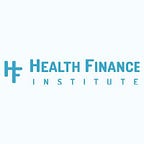Can Blended Finance Raise Capital for NCDs: The Launch of HFI’s Blended Finance Readiness Reports
This is the first in a series of four blogs from HFI being published about how blended finance could close the funding gap for non-communicable diseases in Cambodia, Nigeria, and Tanzania. Each blog will coincide with the publication of a longer Country Blended Finance Readiness Report and a webinar where members of HFI will present the key findings of the reports.
Non-communicable diseases (NCDs), or chronic diseases, are long-lasting and often slow progressing diseases caused by a combination of genetic, physiological, environmental, and behavioral factors. These diseases are not spread from person to person, yet account for over half of the global disease burden. More appalling — one-third of adults lives with multiple chronic conditions. A diverse group of conditions, NCDs include diseases ranging from diabetes to mental health disorders to autoimmune disorders. The four most common NCDs are cardiovascular diseases, cancer, respiratory diseases, and cancer.
NCDs are the greatest source of preventable and treatable illness, disability, and mortality worldwide. NCDs are responsible for over 70% of annual global deaths — the equivalent of wiping out the equivalent of the full population of California every single year. These countless preventable deaths pose a substantial economic and health burden globally — just within the working-age population, there are 30 NCD-related deaths every minute worldwide.
Sadly, the funding to date has fallen far short of the challenge. Despite the massive burden of NCDs, and readily available prevention and treatment interventions, in 2017 less than 2% of development assistance for targeted NCDs. A recent report from the Lancet Commission on NCDI Poverty underscores the disproportionate impact on the world’s poorest billion who are most vulnerable to the economic burden of NCDs. As countries continue to combat the COVID-19 pandemic, ODA funding will decrease and budgets will shift focus to the pandemic. NCDs could lose some of the limited funding they receive despite being deeply connected to COVID-19 severity and mortality. Official development assistance (ODA) is a major source for healthcare financing and decreasing funding will have drastic effects on NCD care. Lower-middle-income-countries (LMICs), who receive the most ODA, also account for over 85% of premature NCD deaths and will feel the effects of decreased aid the hardest.
The United Nations, recognizing the disconnect between NCD burden and funding, recommended exploring innovative finance mechanisms to increase NCD funding. Innovative financing refers to non-traditional mechanisms of raising funding and blended finance is one such mechanism.
Blended finance creates strategic partnerships between the public and private sector investors to de-risk investments and offer higher returns on investments (ROIs), incentivizing increased overall funding. HFI focuses on targeting this finance towards sustainable development in developing countries and specifically as a solution to the funding gap for NCDs in LMICs.
Through desktop reviews and interviews with relevant stakeholders, HFI set out to analyze the financial and epidemiological landscape of four countries to learn if the country was ready for blended finance for NCDs. HFI identified several criteria to predict if a country would benefit from blended finance and if the country has the necessary environment for a blended finance to succeed. This criteria includes: a high burden of NCDs, private and public sector engagement, a healthy impact investing landscape, ease of investment, and government support. HFI used these criteria to determine which countries could foster a successful blended finance model for NCDs and chose to further investigate Cambodia, Mexico, Nigeria, and Tanzania.
For these reports, HFI conducted desktop research on each country’s health sector, NCD burden, business landscape, and investing landscape. In Nigeria and Cambodia, HFI also engaged in-country ambassadors to conduct interviews with relevant stakeholders.
These blended finance readiness reports lay the foundation for HFI to develop innovative financing models and broker public-private partnerships. More so, they offer an opportunity to learn about blended finance as a solution to large-scale funding gaps.
Please join us for our launch event series to hear more. These events will highlight key findings from each report and describe how the findings will influence future blended finance deals for NCDs. At the end of each webinar, you will be able to answer the question: Can blended finance raise capital for NCDs.
Find the details and registration for each event below:
Cambodia: Thursday, November 5 at 4 PM (ICT), 11 AM (CET), 5 AM (EST) –
Nigeria: Thursday, November 12 at 3 PM (WAT), 5 PM (CET), 10 AM (EST) -
Tanzania: Thursday, November 19 at 4 PM (EAT), 3 PM (CET), 9 AM (EST) -
